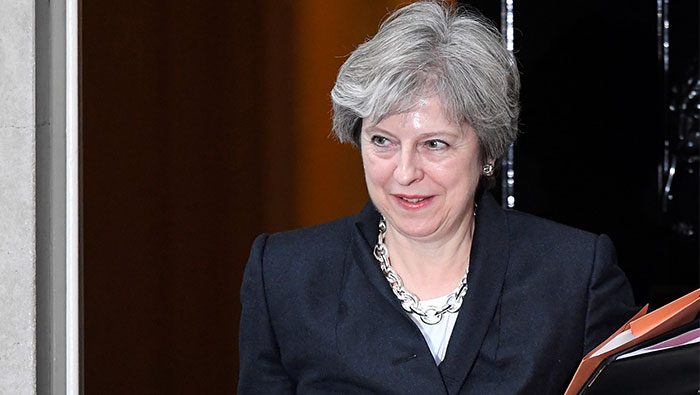
London: Britain will publish a draft law on Thursday designed to cap consumer gas and electricity prices for millions of households, taking action to try and fix a market it says punishes loyal customers.
Prime Minister Theresa May first proposed a price cap on the energy sector earlier this year, the biggest market intervention since its privatisation almost 30 years ago.
Her announcement last week that the plan would go ahead initially wiped more than 900 million pounds ($1.19 billion) off the value of the two British listed companies Centrica and SSE alone.
Energy bills have doubled in Britain over the past decade to an average of about 1,200 pounds ($1,500) a year, putting the biggest providers in the sights of politicians.
"I have been clear that our broken energy market has to change — it has to offer fairer prices for millions of loyal customers who have been paying hundreds of pounds too much," May said in an emailed statement on Thursday.
The government will publish the draft laws later in the day, inviting scrutiny from parliament before it begins the legislative process. No details about the level of the cap were provided in advance.
Under the bill, the regulator Ofgem would bring in a price cap on standard variable tariffs (SVTs), which are basic rates that energy suppliers charge if a customer does not opt for a specific plan.
The business department said the cap would come in as soon as practicable after the legislation has passed. It will be a temporary measure, in place until the end of 2020 and Ofgem will then decide if the cap needs to remain, depending on how the market is working.
The cap is seen as a way to appeal to those voters who, after seven years of public spending cuts, are struggling with rising inflation and weak wage growth.
The leftist opposition Labour Party, which has long advocated intervention in energy markets, performed better than expected at a June snap election, depriving May of an outright majority in parliament.
Britain's energy market is dominated by the so-called big six providers — Centrica's British Gas, SSE, Iberdrola's Scottish Power, Innogy's npower, E.ON and EDF Energy, which account for about 85 percent of the retail electricity market.
More than 18 million customer accounts in Britain are currently on a standard variable tariff or other default tariffs, many of which offer poor value to customers because they are priced higher than the fixed-rate deals available to consumers who actively seek them out.
The government said it wanted to go further that plans announced on Wednesday by Ofgem to extend an existing price cap which applies only to vulnerable consumers.
Ofgem said that whatever was contained in the upcoming legislation, the government's price cap would not come into effect for the upcoming winter.